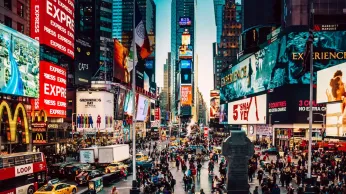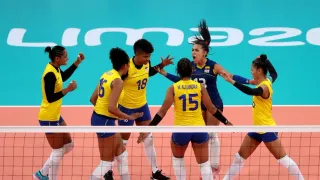
7 hours ago
Broadway Actors Prepare to Strike: Historic Labor Action Looms Over Theater District
READ TIME: 3 MIN.
For the first time in more than five decades, Broadway’s vibrant stages may fall silent as the Actors’ Equity Association (AEA), the national union representing 51,000 actors and stage managers in live theater, moves toward a strike after contract negotiations with the Broadway League stalled earlier this week . The looming action, which could shutter 32 productions at the peak of New York’s theater season, marks the industry’s most significant labor crisis since 1968—a year remembered for a three-day shutdown that ended only with mayoral intervention .
Negotiations between the AEA and the Broadway League broke down over persistent concerns about health insurance funding, with union leaders warning that the current employer contribution has remained stagnant for more than a decade. Without a renewed commitment, the health plan is projected to run a deficit by May 2026, threatening coverage for thousands of performers and stage managers .
Brooke Shields, Equity President and veteran performer, highlighted the physical demands placed on actors, recalling her own experience dancing for three months with a torn meniscus. “There are no Broadway shows without healthy Broadway actors and stage managers. And there are no healthy actors and stage managers without safe workplaces and stable health insurance,” Shields said .
Union leaders, including Executive Director Al Vincent Jr, have called for the Broadway League to match or exceed the contributions made by smaller regional theaters, emphasizing the record-breaking revenues seen in the last season. “Asking our employers to care for our bodies, and to pay their fair share toward our health insurance is not only reasonable and necessary, it’s an investment they should want to make,” Vincent said .
For LGBTQ+ performers, who make up a significant and highly visible segment of Broadway’s workforce, the stakes are particularly high. Many face unique health care needs and systemic barriers to coverage, including those related to gender-affirming care and mental health services. The union’s push for better insurance is seen as not only an economic necessity but a matter of equity and inclusion.
Transgender and nonbinary actors have historically encountered gaps in health coverage, with some policies excluding or limiting access to essential gender-affirming treatments or therapies. “Broadway has always been a place where LGBTQ+ artists can thrive, but that doesn’t mean our needs have always been met,” said one performer, speaking on condition of anonymity “This strike is about making sure the industry supports us, not just in the spotlight, but behind the scenes and in our daily lives.”
The AEA’s bargaining position explicitly cites “well-being” and “safe workplaces” as central demands, echoing concerns among LGBTQ+ workers about harassment, discrimination, and lack of support for mental health . For many, the fight for improved conditions is inseparable from broader struggles for inclusion and dignity.
Should the strike proceed, audiences could see the immediate closure of 32 major productions, affecting not only performers but the entire ecosystem of stage crew, box office staff, and local businesses that rely on Broadway traffic . The Broadway League, which represents theater owners and producers, has publicly stated its commitment to “good-faith negotiations” and a “fair agreement that works for shows, casts, crews and the millions who come to experience Broadway” .
The union has already begun to distribute “strike pledge cards” at stage doors, asking members to publicly commit to taking action if necessary . For performers like Kaylin Seckel of Disney’s ‘The Lion King,’ who ruptured her Achilles tendon on stage in 2022, robust health coverage is not a luxury but a requirement for safe and sustainable careers .
The Broadway dispute unfolds against the backdrop of wider unrest in the entertainment industry. In 2023, Hollywood writers and actors staged mass walkouts over streaming-era pay and the use of artificial intelligence, while video game voice actors carried out nearly a year-long strike . The convergence of these actions signals a growing demand for fair compensation, safe conditions, and recognition of the diverse needs of workers in creative fields.
As negotiations continue, the possibility of a strike remains real, with both sides under pressure to reach a resolution that preserves Broadway’s status as a global cultural hub. The outcome will have lasting implications, not just for the theater industry, but for labor relations, health equity, and the future of inclusive performance spaces.
For updates, members and allies are encouraged to follow **@EquityUnitedOfficial** on Instagram for the latest developments and calls to action (Instagram: @EquityUnitedOfficial).






